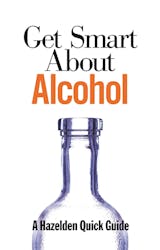Apply practical strategies from the latest expert research to change the way you think and react to feelings of depression.
Apply practical strategies from the latest expert research to change the way you think and react to feelings of depression.Do you (or does someone you know) have problems with depression? Have you been told that you might be depressed? We all have bad days and feel down from time to time. It's common, and even healthy at times. But when these feelings linger to the point of keeping us from our responsibilities and affecting our relationships, we can feel helpless.Using the research of experts in the field of emotional health, this book outlines a basic understanding of depression and offers healthy ways to process and change our thoughts, feelings, and behaviors to better deal with it. These strategies are based on Rational Emotive Behavioral Therapy (REBT), a widely used method of examining our own thoughts to challenge and change irrational beliefs.In this book, you willDiscover the "anatomy" of depression and break it down into its basic elementsLearn the different forms of depression so you can better care for your ownUncover your own sources of depression and learn how certain coping strategies are often both a symptom and a cause of depressionDiscover how you experience depression through your own thoughts, feelings, and behaviorsKnow how and when to reach out for professional help, if necessaryReclaim your life from depression by making conscious choices in your thinking, feeling, and actingAbout Hazelden Quick GuidesHazelden Quick Guides are short, accessible e-books that draw on the original work and best practices of leading experts to help readers address common addiction recovery and emotional health issues. This first four-book collection applies the proven methods of Rational Emotive Behavior Therapy (REBT) to challenge and change the irrational thoughts and beliefs that contribute to the debilitating effects of shame, anger, depression, and anxiety.




































